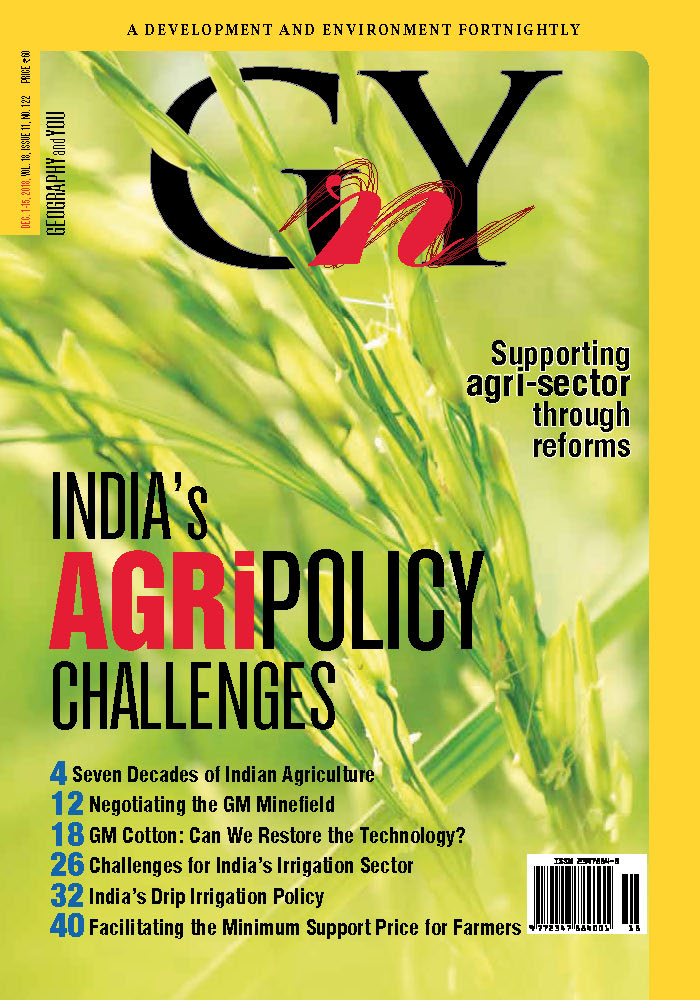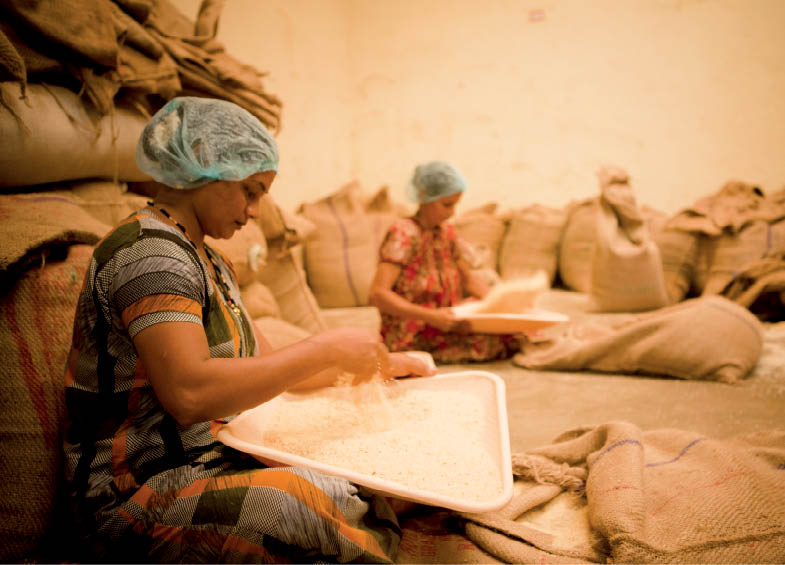
Expert Panel

Former Chairperson, National Biodiversity Authority, Chennai.

Air Vice Marshal (Retd) Former DG, India Meteorological Department (IMD), New Delhi

Geologist and Secretary General, 36 IGC, New Delhi.

Former Professor, CSRD, Jawaharlal Nehru University, New Delhi.

Former Vice Chancellor, MG Kashi Vidyapeeth, Varanasi

Former Member Secretary, Central Pollution Control Board, New Delhi.

Former Professor, Jawaharlal Nehru University, New Delhi

Chief Executive, ACRA, Noida, Uttar Pradesh.
Inside this issue
OVERVIEW
Post independence, the agriculture sector has experienced growth, though not as rapid as the non-agricultural sectors. A large number of public sector interventions are operational to help small farmers respond better to the competitive market scenario.
GM DEBATE
Progress in biotechnology has brought in genetically modified (GM) crops that are expected to change the agricultural contours. However, unlike the developed world, there are latent as well as vocal apprehensions in the developing world regarding the use of GM seeds. Further, legal issues of patenting in different countries are also a serious concern.
In India, the efficacy of biotechnology and genetic modification appears to have taken a hit with the latest trend anticipating a decline in the yields of Bt cotton and a hostile climate pervading for all genetically modified crops. Continued research, however, is non-negotiable if science based advancements are to take root.
IRRIGATION
Over dependence on groundwater poses a tough challenge to the agriculture sector, especially in water scarce regions and during dry spells. Measures such as precision farming, incentivising farmers for rational use of groundwater and imparting knowledge about recharge methods may be possible solutions.
The method of drip irrigation has several advantages over the flow method. Despite this, only 14.5 per cent of its potential is being utilised in Indian agriculture. Concerted efforts to encourage more states to engage in drip irrigation can help combat increasing water scarcity in agriculture dependent regions of the country.
PRICE SUPPORT
Several commissions have been set up from time to time to address the issue of foodgrain pricing. However, the PM-ASHAA scheme launched in the 2017-18 Union Budget is expected to revisit the challenges of minimum support prices.
IN CONVERSATION WITH
Green Revolution should not become Greed Revolution
In brief
We have been arguing about the efficacy of genetically modified (GM) crops for a considerable time now. In the backdrop of agrarian crisis that India is facing, GM crops seem a seductive pathway to prosperity. While there are scientists and authors—diehard believers that GM crops can provide the w
After independence Indian agriculture emerged from the shadows of British colonial policies striving to ward off six critical inherited issues— extreme food insecurity; primeval agricultural technology; low level of irrigation; meagre spread of agricultural knowledge institutions and highly distre

